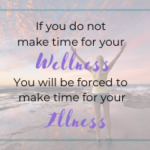Stress is a wide spread and constantly growing problem. From ever increasing demands at work and hectic family-lives, to money worries, relationship worries, and constant exposure to technology meaning we never properly switch off, chronic stress can have serious implications for our health and happiness. Below are 7 simple steps given by Nutritional Therapist Hannah Braye from Bio-Kult (www.bio-kult.com) which you can take to unwind, reduce stress and look after your health during the winter months and beyond.
- Balance blood sugars – Cortisol (our stress hormone) and blood glucose levels are intimately linked. When we are stressed, we are more likely to skip proper meals and instead crave sugary foods and refined carbohydrates. This can send our blood glucose on a crazy rollercoaster of peaks and troughs, which in turn releases more cortisol! Avoiding sugary drinks and snacks and eating regular meals, containing complex carbohydrates and good quality protein each time you eat, is therefore one of the best things you can do to see yourself through a stressful period.
- Gentle exercise – Despite feeling tired, many highly stressed people tend to exercise intensively as a form of stress relief. However, over-exercising in times of high stress can do more harm than good. Physical exercise is yet another stress on the body and activates exactly the same physiological responses as psychological stress. Gentle exercise such as walking, jogging, swimming, and yoga is much more beneficial during stressful periods.
- Look after your gut – Our brain and digestive system are intrinsically linked, so stress can often trigger digestive symptoms (and vice versa). Stress can disturb the mixture of bacteria in our guts, reducing the number of beneficial strains, which in turn increases the risk of a pathogenic overgrowth. Taking a good quality live bacteria supplement such as Bio-Kult Advanced Multi-Strain Formula (www.bio-kult.com), with 14 different strains, can help replenish depleted beneficial gut flora keeping the microbiome in balance to help with a diverse range of stress related gastrointestinal disorders.
- Still your mind – When we are stressed and worried it can be difficult to switch off. Whilst life can be busy, it’s important to set aside 10 minutes each day to breathe deeply and focus on quietening the mind. This could be going for a walk around the park on your lunch break, downloading an app which offers short guided mindfulness meditations, going to a yoga class or simply doing some sun salutations when you wake up in the morning.
- Increase fruit and vegetable intake – Our adrenals are tiny glands which sit on top of the kidneys and regulate our stress response. When our adrenals are under pressure, they have an increased requirement for certain nutrients. These include the B vitamins, vitamin C, magnesium and potassium. It’s therefore important that we get more of these through our diet. Eating a rainbow of brightly colour fruit and vegetables is the best way to do this. Especially important are leafy green vegetables, so make sure you include at least 1-2 portions every day.
- Avoid stimulants – Stress can leave us feeling exhausted and in need to unwind. However, reaching for stimulants such as caffeine and alcohol is a bad idea. Caffeine has been shown to amplify cortisol production, even hours after drinking it and alcohol and other drugs can affect our mood by interfering with our neurotransmitters and reducing absorption of important nutrients (which we need more of in times of stress).
- Get a good night’s sleep – When we are tired, our coping mechanisms are reduced making already stressful situations 10 times worse. However, when we have had a good night’s sleep, we have improved memory and concentration, we are better able to make decisions and less likely to lose our temper. Ideally phone, computer and TV screens should be avoided for at least an hour before bed, and apps which filter blue light can be used to reduce exposure at other times of day. Don’t eat too late and get into a routine which includes a regular bedtime and some time to relax, such as reading a book or taking an Epsom salt bath.
Love this post? Rate it!
[Total: 0 Average: 0]






![BURNOUT – HOW TO SPOT THE SIGNS AND STEPS TO AVOID IT Penny-Weston-2[80509]](https://www.theuknewspaper.co.uk/wp-content/uploads/2021/11/penny-weston-280509-150x150.jpg)
